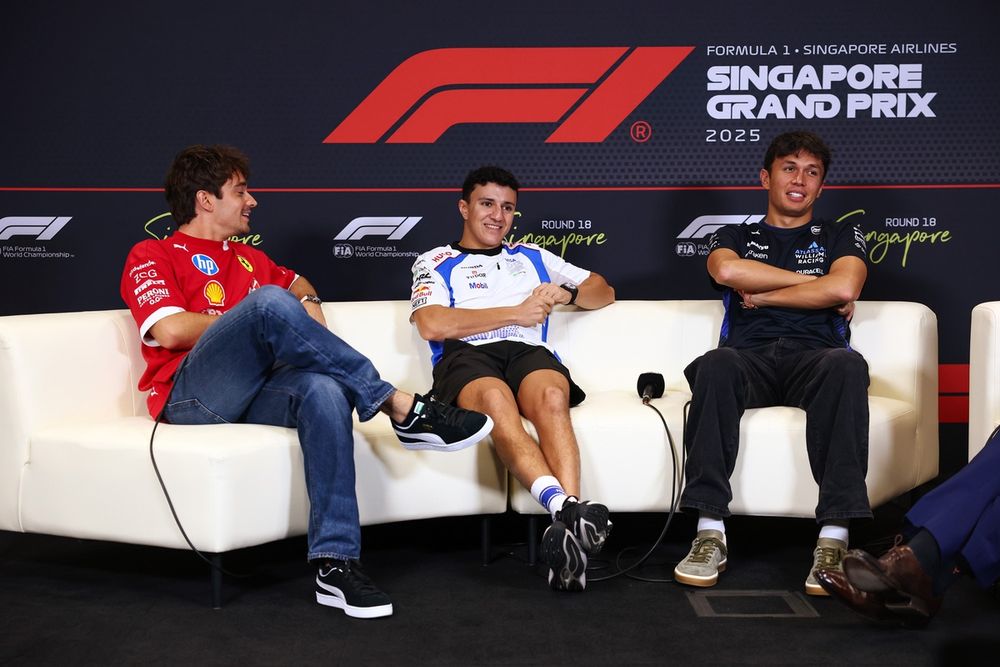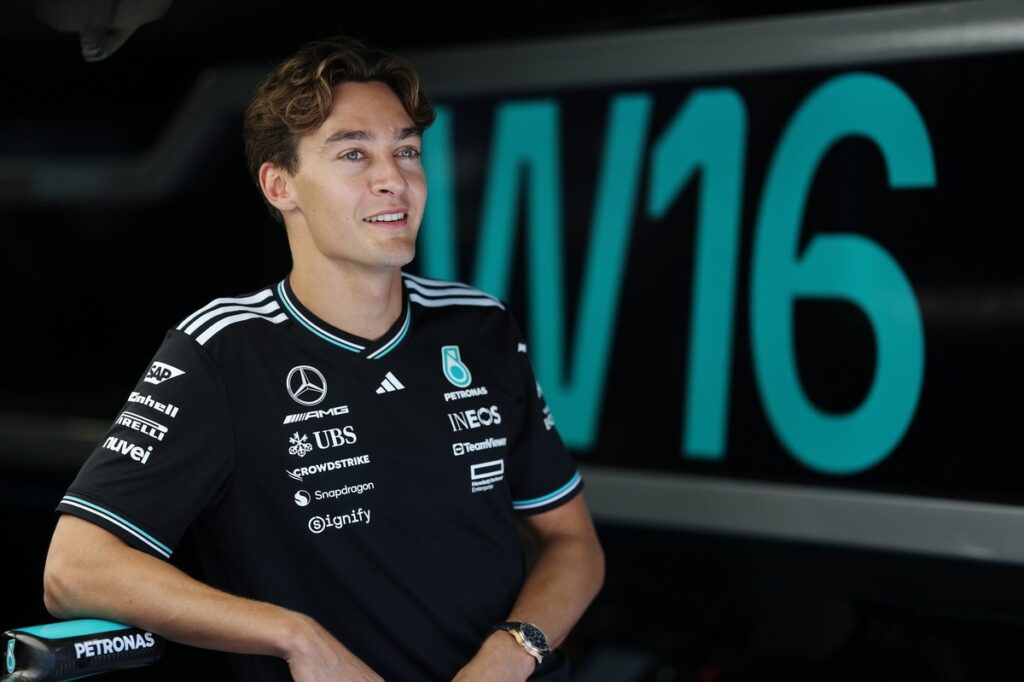George Russell will be a Mercedes Formula 1 driver next season, but is still in negotiations over a new deal as he seeks a “mutually beneficial” contract for 2026 and potentially beyond.
While the cynic’s view of the situation would be that Russell is looking to massage a few more millions out of Mercedes, and take advantage of a season in which he has demonstrated a strong performance baseline, there’s more to the situation than meets the eye.
In the prelude to the Singapore Grand Prix, Russell stated that he wanted his new deal to be “done right” and “fair”; while money will certainly be a consideration, there’s the added complication of sponsor obligations to take into account.
Russell did not outwardly mention this as a factor, but the difficulty of managing marketing activities alongside a driver’s training and recovery time alongside a congested 24-race calendar was explained by two of his competitors: Charles Leclerc and Alex Albon.
Marketing is a huge influence in a team’s schedule, both during a race weekend and in the breaks between events. For drivers, it’s a necessary evil; as the poster children for each team, drivers are expected to participate in meet-and-greet events, talks, and even advertising materials.
Sponsorship has evolved from the mundane art of sticking a logo on the car. There’s a reason why teams term them as partnerships; brands are not only keen to advertise their products and services, but also lean on the teams for expertise and collaborations.
Technical industries, for example, can absorb some of the engineers’ expertise and apply it to their own processes. Others can use the drivers’ growing profiles as a marketing tool.
George Russell, Mercedes
Photo by: Sam Bloxham / LAT Images via Getty Images
While some might suggest that drivers are paid enough and should suck up the inconvenience of marketing obligations, Leclerc explained that drivers don’t necessarily push back out of a lack of interest – instead, drivers want to ring-fence their time to concentrate on the demands placed upon them as athletes.
“For sure [marketing obligations] increased, and it gets to a point where you have to think at one point it has to affect performance because, at the end of the day, we are athletes,” Leclerc said.
“Recovery is important. We’ve got more and more races. We’ve got more things to do at the factory, especially on a year like this. I think that’s the year where we feel it the most because you’ve got the new regulations coming with so many new things.
“We are requested at the factory a lot more, plus the sponsorship events, which makes it quite tricky to manage it all. It’s a balance to find.
“We cannot do what we do as a team without the support of the sponsors, and in those cases you’ve got to give back. So it’s a balance to find, but for sure, on a season like this, it’s tougher than other seasons.”
Albon agreed with Leclerc’s sentiment, adding that drivers want to ensure that they have an agreeable amount of free time to pursue their own training, recovery, and individual interests.

Charles Leclerc, Ferrari, Isack Hadjar, Racing Bulls, Alexander Albon, Williams
Photo by: Clive Rose / Formula 1 via Getty Images
He spoke about juggling obligations with all of the sponsors that a team has – with some more exacting on the drivers’ time than others.
“Different teams have different obligations, and some sponsors are more demanding than others, up and down the grid,” Albon added.
“Some teams have different cultures as well towards the approach of performance over the commercial side of the sport. As Charles said, as drivers, we always fight for the free time.
“Our free time is now more and more valuable to us as drivers as well, so we do always try our best to reduce the days. I think that’s fair to say for everyone.”
While it’s true that drivers are incredibly well paid, money doesn’t free them from the human condition. Flights to each of the 24 races, on luxury private jets or in commercial cabins, are nonetheless exhausting.
Add that to flights around the world to sponsor events in other countries, and it restricts the time needed for the drivers to follow their workout plans comprehensively. Performance is a driver’s ultimate priority, and they want to feel that any sponsor commitments are moulded around that.
George Russell, Mercedes
Photo by: Simon Galloway / LAT Images via Getty Images
“I think for any driver, when you get to a certain point in your career, things have to be done right,” Russell said on his own contract talks. “Every time you renew a contract, it’s the most important one of your life and it has to be done with good care. There’s nothing to worry about, and it will get done when it gets done.
“I think it’s just about something that’s fair, mutually beneficial. I think that’s what we all chase. It’s obviously different for certain drivers who may have a bit more power, may have a bit less power.
“But as I said, no more updates. Nothing to report. I’ll be glad to tell you all once there is.”
Marketing forces are likely what Russell is referring to when he speaks about a more equitable deal. It is no secret that Max Verstappen has negotiated a cut in marketing days and media obligations to create a more favourable situation for himself – as a four-time champion, he can command that free-time real estate.
While Russell does not possess such accolades, he knows that his performances this year have bought him plenty of respect from within the team and outside. It’s natural that he wishes to capitalise on that, and he won’t rush to sign a contract until he feels most of his demands are met.
We want to hear from you!
Let us know what you would like to see from us in the future.
Take our survey
– The Autosport.com Team
Read the full article here

